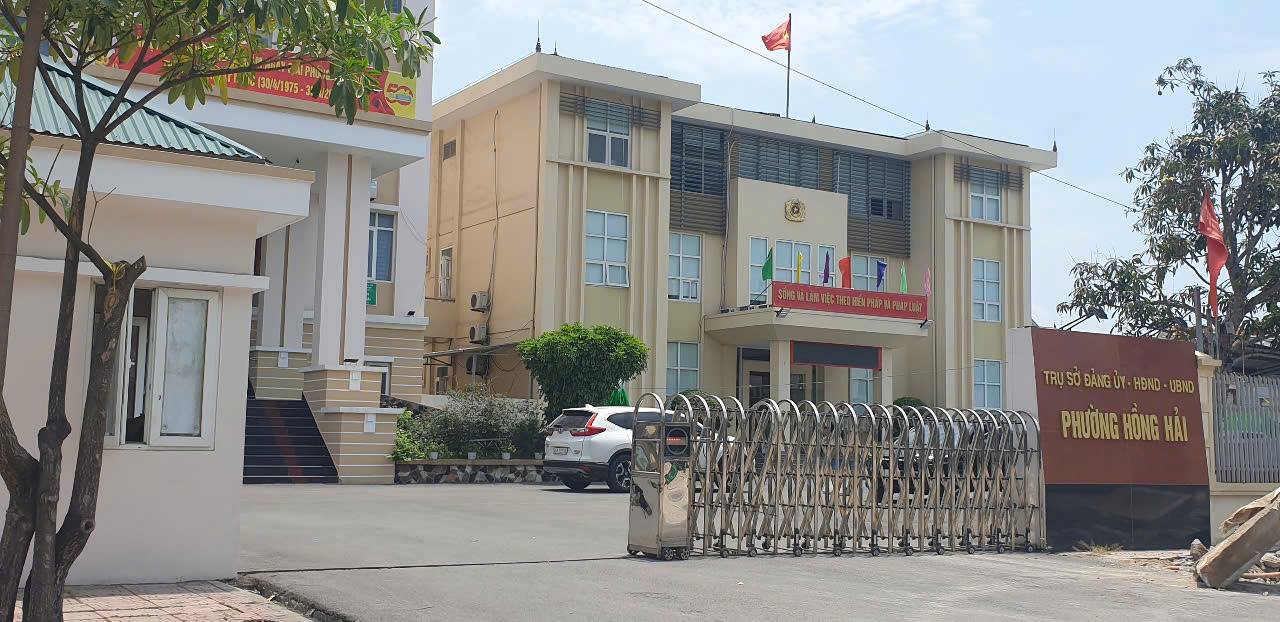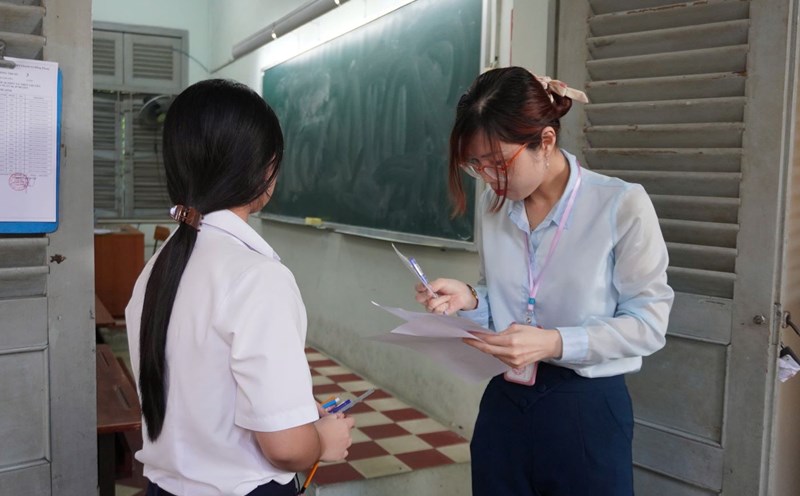In Ha Long City, Mr. Vu Quyet Tien - Deputy Secretary of the Quang Ninh Provincial Party Committee - inspected the preparation work at two new administrative units: Ha Long Ward (established on the basis of merging Hong Ha and Hong Hai wards) and Hong Gai Ward (merged from 3 wards of Hong Gai, Bach Dang and Tran Hung Dao).
The working headquarters of Ha Long ward is at the headquarters of Hong Hai ward People's Committee, while Hong Gai ward works at the headquarters of Tran Hung Dao ward People's Committee. These are all central wards with high population density and a large volume of administrative procedures that need to be resolved.
In Uong Bi city, the Deputy Secretary of the Quang Ninh Provincial Party Committee inspected Yen Tu ward - a new ward formed from the merger of Phuong Dong, Phuong Nam wards and Thuong Yen Cong commune. The ward's working headquarters is located at the current Phuong Dong Ward People's Committee headquarters.
According to reports from localities, closely following the direction and guidance of the Central and the province, preparations for the operation of commune-level administrative units after the reorganization have been urgently deployed.
Localities have proactively completed the necessary conditions on personnel, facilities, equipment and information technology infrastructure, ready for operation according to the 2-level local government model.

Along with that, the work of editing and digitizing documents is also focused on. Up to now, Ha Long City and Uong Bi City have basically completed the editing and digitization of the Party bloc's dossier.
The tasks under the authority of the district level, especially in handling administrative procedures for people, organizations and businesses, are still maintained seriously, ensuring smoothness and efficiency.
Directing at the inspection, the Deputy Secretary of the Quang Ninh Provincial Party Committee requested localities to basically complete the arrangement of headquarters and working facilities for new commune-level agencies before June 10.
The arrangement of headquarters needs to be done scientifically and reasonably, both meeting the working requirements of the team of cadres, civil servants and public employees and creating favorable conditions for people to resolve administrative procedures. Localities need to review and fully prepare machinery and equipment for work, on the principle of making the most of existing assets, ensuring efficiency, transparency and avoiding waste; upgrading or investing is only done when it is really necessary.
In particular, the data transmission system must be ensured smoothly from the provincial to the commune level right in the trial operation phase, meeting the requirements of information security and safety.
Along with that, localities need to soon organize in-depth guidance and training for the team of officials in charge of handling administrative procedures in communes after the arrangement, helping to quickly adapt to the new operating method.
The arrangement and assignment of civil servants at the new commune level also needs to be associated with restructuring the team, improving the quality of cadres and civil servants to increase the efficiency of the government apparatus, better serving people and businesses.








